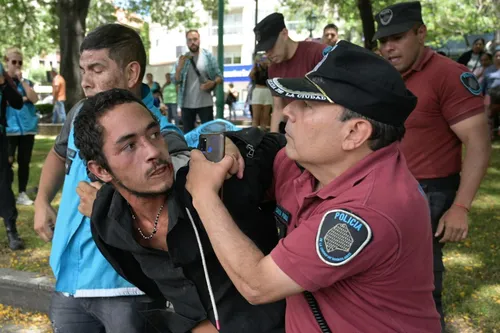
The Association of State Workers (ATE) in Argentina and the General Confederation of Labor (CGT) called a large demonstration for this Wednesday morning (27), in front of the Palace of Justice, in Praça dos Tribunais, in Buenos Aires . The protest is a reaction to a decree from the government of President Javier Milei, published this Tuesday (26), which determines the non-renewal of the contract of public servants incorporated throughout 2023.
According to the general secretary of ATE, Rodolfo Aguiar, 7 thousand workers will lose their jobs with the austerity measure. “Let no one expect us to accept just one dismissal”, wrote the union leader on his social media profile.
“Workers, in all cases, perform essential tasks to guarantee the functioning of all areas of the State, regardless of the type of their contractual relationship”, noted the union.
The government decree prevents the renewal of all contracts that would expire on December 31st. In cases of extreme need – as long as there is a request from superiors – employees may have contract renewals valid for a maximum of 90 days.
In addition to the demonstration at Praça dos Tribunais, called National Day of Struggle, unions organize actions in other provinces, such as roadblocks, strikes and assemblies.
Economic measures
The decree for non-renewal adds to a series of fiscal adjustment measures, deregulation and reduction of the State’s role in the economy, signed by the president who took office on December 10th. A libertarian economist, Milei entered politics about four years ago and said he wants to drastically reduce the size of the government and eliminate the fiscal deficit.
The measures were also accompanied by the devaluation of the currency, the Argentine peso, against the dollar, which resulted in an increase in prices in an economy that was already experiencing hyperinflation.
The Necessity and Urgency Decree (DNU) has 366 articles, proposes a “shock stabilization plan” and aims to further advance the privatization of public companies.
Union mobilizations will also be directed against the emergency decree. The Federal Administrative Litigation jurisdiction received at least eight actions against the DNU, with requests for suspensive measures until allegations of the alleged unconstitutionality of the rule can be ruled on.
Repression
Regarding the protests called for this week, the Presidency’s spokesman, Manuel Adorni, said that the government will use “all dissuasive measures” at its disposal, such as the public order protocol. Among these measures, the spokesperson said, are strategies used on Wednesday last week (20), when there were restrictions on people’s mobility.
*With information from the Telam agency.
Source: www.brasildefato.com.br

